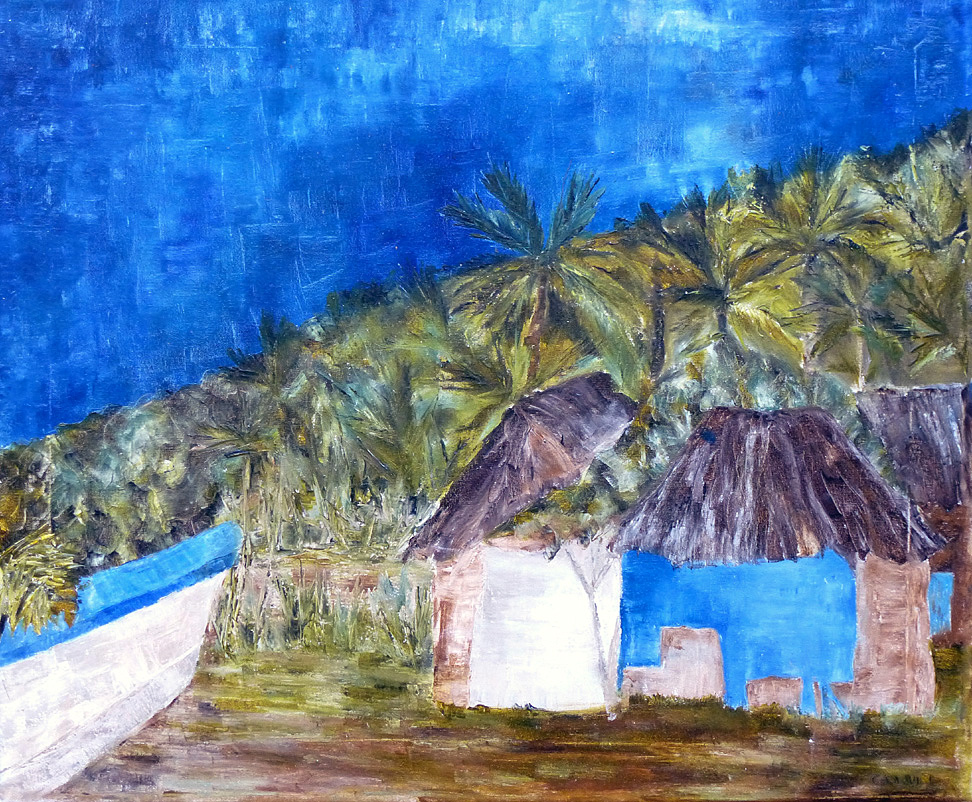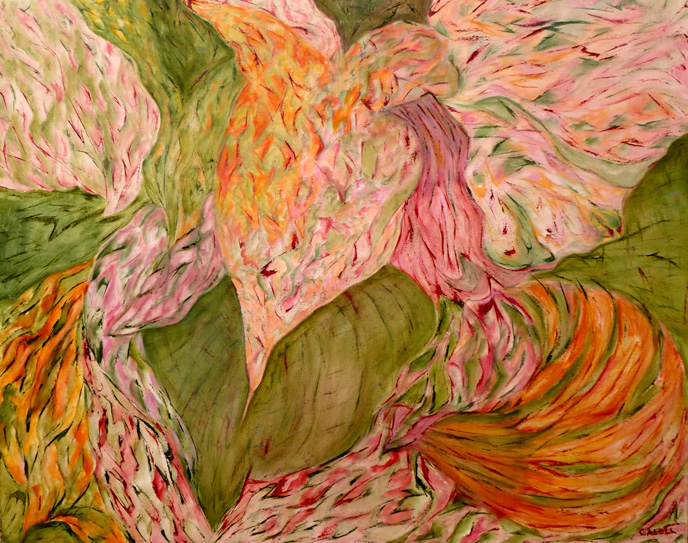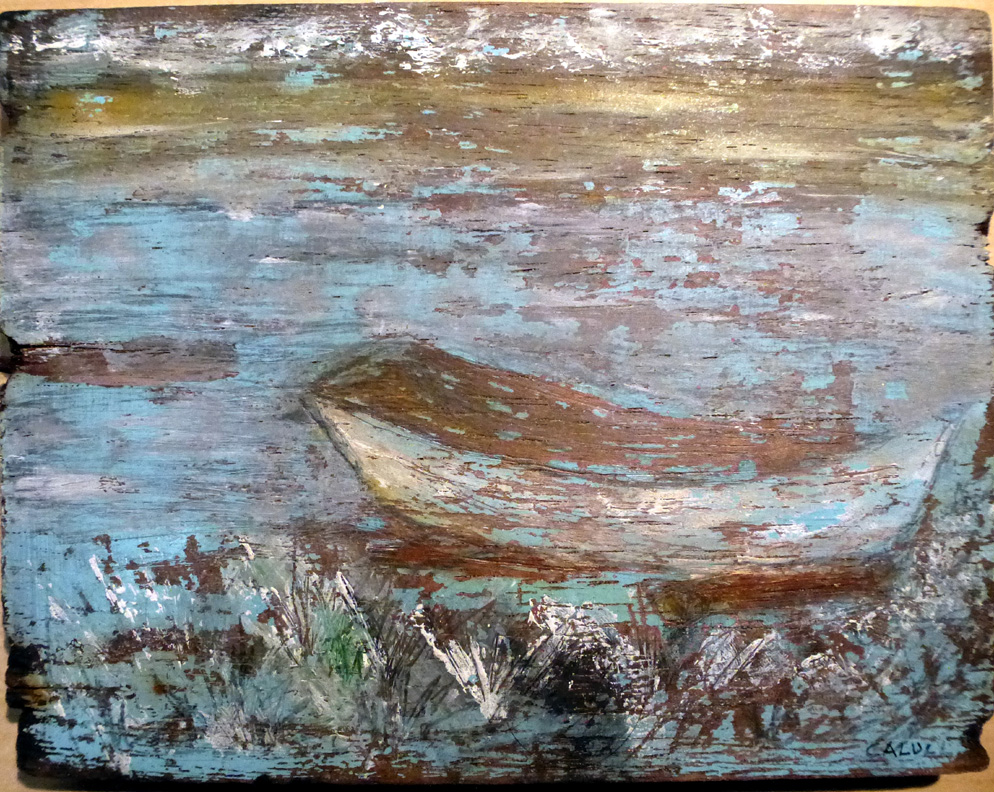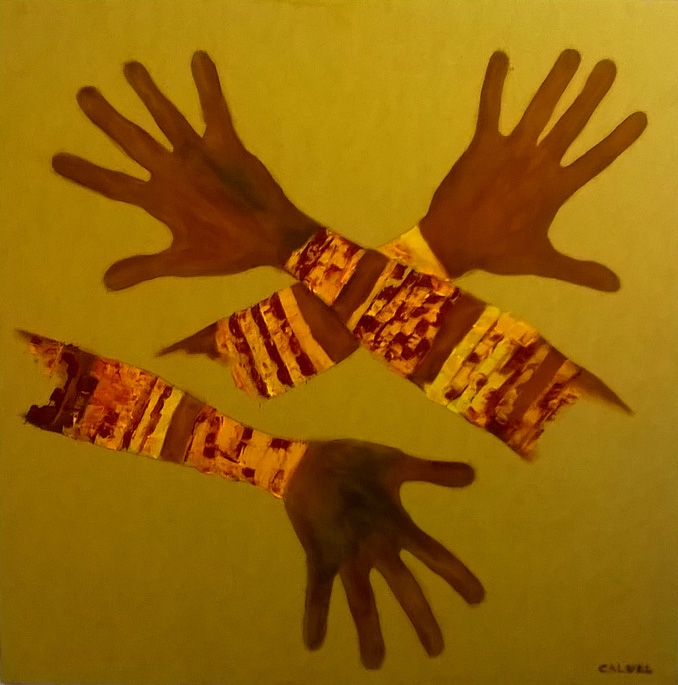|
"A
trote y moche"
means a fast and disorder way to do things. This series is a tribute
to Guna's, all those characters that go unnoticed in the eyes of those
who visit a country, even though they are actors of their culture.
The portraits do not belong to the celebrities or models of a country,
they are people like any of us, people from the village that I met
in a small strip between the ocean and the jungle. And if one pays
attention, they all belong to the female gender. These links, created
by brushstroke and line by line, were my way to approach to the Guna
community, their mesenteries, the textures that are formed between
them...That allowed me to enjoy what is probably different in the
similarity.
The Gunas Indians live in 49 communities, most of them
in islands, in the Caribbean strip of Panama. Some of them are located
on land such as Armila where the artistic project of La Wayaka Current
was developed in which I participated. To enter the territory you
need a valid passport and a special permit issued by the Guna's Congress.
In 1925 the Guna Indians staged an armed revolution to achieve their
independence. Subsequently, in 1938 they signed a pact with the Panamanian
government, which recognized that only one guna could own the land
of the region, would be autonomous politically and administratively,
the Panamanian state should request permission from Congress to develop
any kind of project in its territory; In return, education would be
a matter for Panama.
Its political organization is the assembly, each community meets two
or three times a week to discuss issues and make decisions. They have
a representative, the Sahila, elected by votes and for a year in office,
and he and the secretary represent the community in the region and
the General Conference.
Women have a special relevance in the community, they work as matriarchy,
they are the owners of the land, the protagonists of the rites and
in the legends assume the role of "knowledge".
Communities are self-managed, living on agriculture, fishing, banana
and coconut exports and eco-tourism. Its main enemy nowadays is climate
change, which endangers the survival of its territory. |
|






